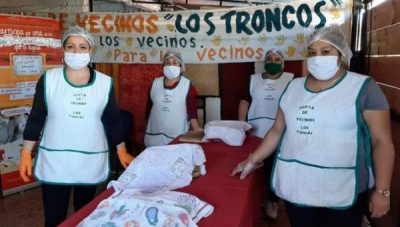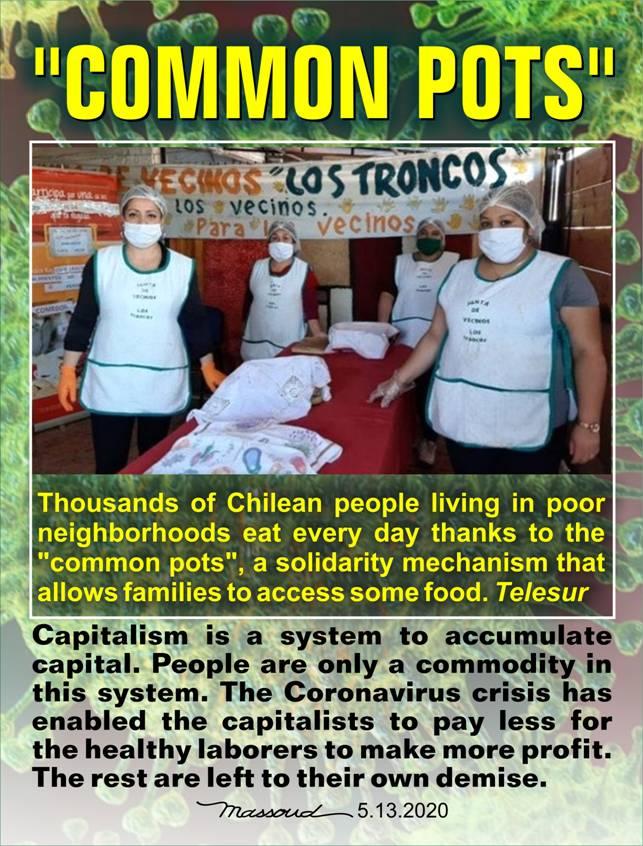Poverty Forces Chileans to Cook in ‘the Common Pot’
The most immediate memory of the 'common pots' dates back to the dictatorship in 1982.

Capitalism is a system to accumulate capital. People are only a commodity in this system. The Coronavirus crisis has enabled the capitalists to pay less for the healthy laborers to make more profit. The rest are left to their own demise.
-Massoud Nayeri, May 19, 2020
***
Chile’s economic crisis unleashed by President Sebastian Piñera’s neoliberal policies and exacerbated by the pandemic revived images that had not been seen in Chile since the time of the Augusto Pinochet dictatorship (1973-1990).
Thousands of people living in poor neighborhoods eat every day thanks to the “common pots”, a solidarity mechanism that allows families to access some food.
Over the last weeks, this form of social organization has proliferated in the periphery of Santiago city where thousands of families have been left without income because of the closure of shops and the suspension of construction works.
“The most immediate memory of the common pots dates back to the crisis that hit the country in 1982,” the University of Chile professor Nicolas Angelcos said.
After 38 years, in Puente Alto, one of Santiago’s poorest communes, social leader Susana Castillo prepares 250 servings of rice with chicken.
🔹 Efecto coronavirus: pobreza en Chile podría llegar a los dos dígitos durante este añohttps://t.co/BxwKyjf1du
— T13 (@T13) May 13, 2020
Coronavirus effect: poverty in Chile could reach double digits this year. The meme reads, “according to an ECLAC report, poverty will increase significantly in Latin America.”
“More families are coming, especially since the quarantine has been extended. There are more and more people who are losing their jobs,” she said at a site where the Puente Alto municipality delivers food to some 5,000 people.
“We lived on the salary of my partner, who was a merchant, and now we are left with nothing,” a mother of five children Guacolda Bueno said and added that the common pot has allowed her at least to “have lunch.”
by Massoud Nayeri
According to the Health Ministry, Puente Alto is the second Chilean neighborhood with the highest number of COVID-19 cases (1658), only behind Santiago downtown (1873).
In this South American country, unemployment increased to 8.2 percent in the first quarter of 2020 and the Economic Commission for Latin America and the Caribbean (ECLAC) estimates that the economy will fall by 4 percent and poverty could rise to 13.7 percent this year.
*
Note to readers: please click the share buttons above or below. Forward this article to your email lists. Crosspost on your blog site, internet forums. etc.
Featured image: Women prepare food for the people of the Los Troncos neighborhood, Chile, May 13, 2020. | Photo: Twitter/ @ComunOlla


